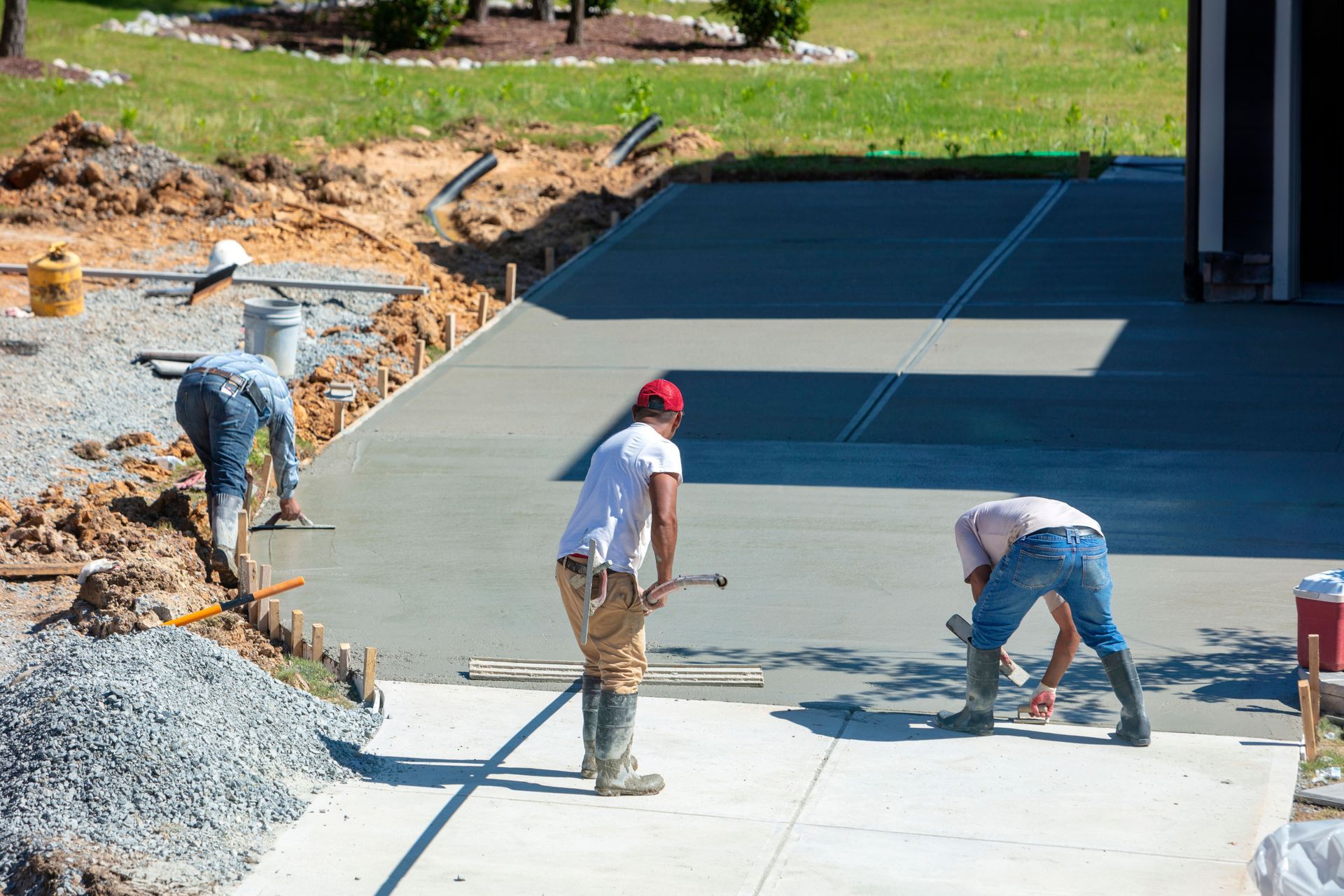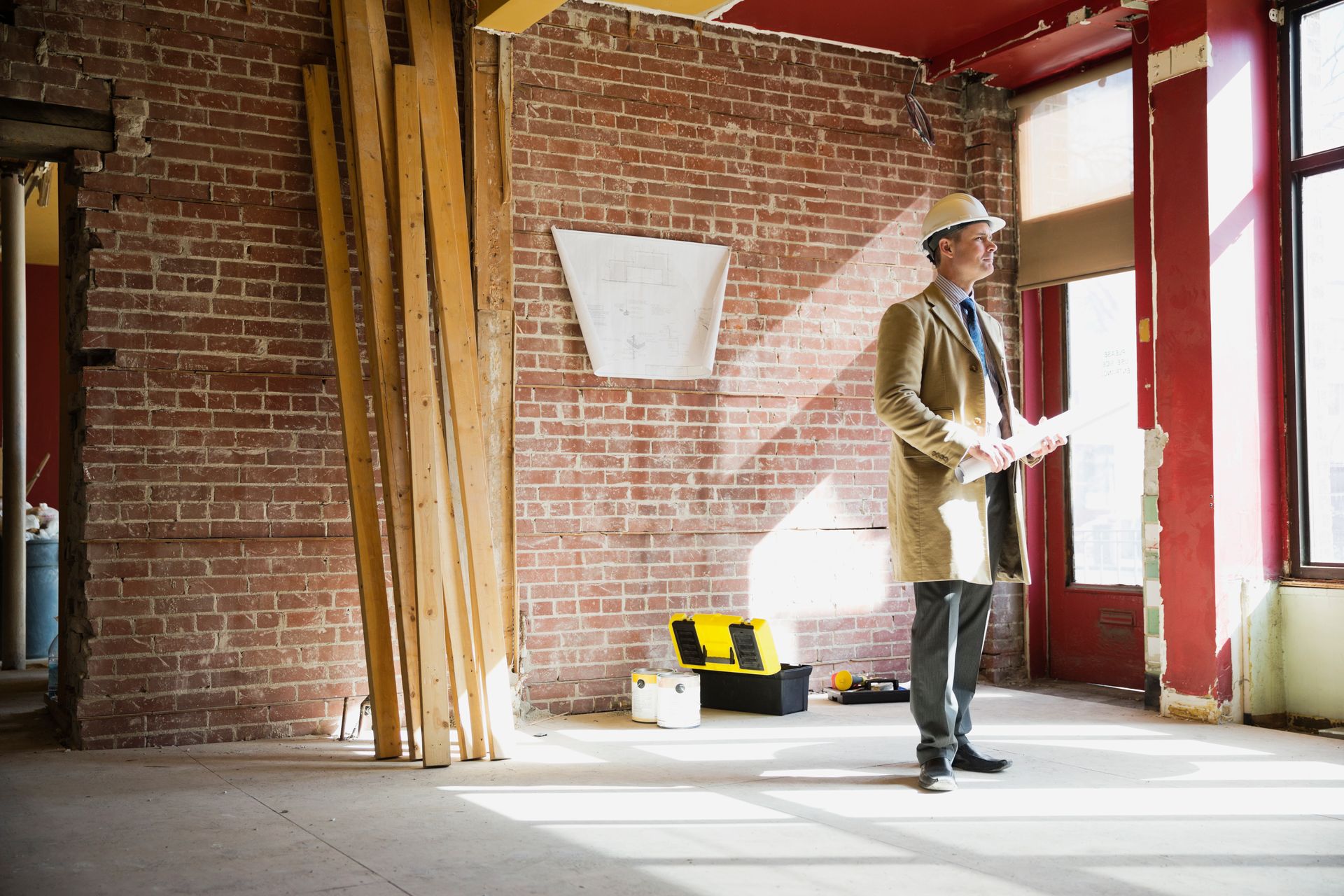16 Reasons Why Concrete Foundations Are Crucial in Commercial Construction
In commercial construction, the choice of foundation is a critical decision that determines the success and stability of a structure. Among the various options available, concrete foundations stand out for their reliability and numerous advantages. With the demanding requirements of commercial buildings, which often need to be durable, adaptable, and cost-efficient, concrete proves to be a fitting solution. From structural integrity to environmental sustainability, the multifaceted benefits of concrete are clear. Developers and builders consistently rely on concrete to provide safe, long-lasting, and cost-effective foundations that support ambitious commercial projects. This article explores why concrete foundations are indispensable in commercial construction, highlighting the many ways they contribute to success, efficiency, and durability.
1. Ensuring Structural Integrity and Stability in Commercial Construction
Concrete's remarkable load-bearing capacity makes it a preferred choice in commercial construction. For buildings like shopping centers, which experience constant foot traffic and heavy loads, a solid foundation is crucial. Concrete evenly distributes structural loads, preventing stress points that could compromise the building. By providing a stable base, concrete ensures commercial structures withstand both vertical and horizontal forces. According to the U.S. Census Bureau, commercial construction projects have steadily increased in scale and complexity over the past decade, highlighting the importance of reliable materials like concrete. Investing in concrete foundations guarantees long-term structural stability and developer confidence.
2. Providing Resistance to Environmental Stress in Commercial Construction
Commercial buildings frequently face environmental stressors, including earthquakes, hurricanes, and flooding. Concrete resists these challenges effectively. Reinforced concrete, in particular, absorbs seismic energy, mitigating potential damage during earthquakes. Its dense composition also protects against water infiltration during floods, preserving structural integrity. By utilizing concrete foundations, developers ensure their commercial projects remain resilient, protecting both the investment and occupants. The inherent durability of concrete under environmental stress makes it a cornerstone of safe commercial construction.
3. Delivering Long-Term Durability in Commercial Construction
Longevity is a hallmark of concrete foundations, which often last for decades without significant deterioration. This reduces the need for frequent repairs and enhances cost-effectiveness. Concrete withstands cracking, weathering, and other environmental impacts, ensuring commercial structures remain stable over time. Minimal maintenance is required, allowing building owners to focus on operational efficiency rather than foundation concerns. By choosing concrete, commercial developers invest in durable infrastructure that stands the test of time, providing both security and financial value.
4. Preventing Settling and Shifting in Commercial Construction
Uneven settling or shifting poses significant risks to commercial structures. Concrete foundations distribute loads uniformly, reducing differential settling that could lead to structural misalignment. Soil conditions naturally change over time, but a well-designed concrete base acts as a buffer, maintaining the building's alignment and stability. By employing concrete, commercial construction projects minimize potential long-term damage and protect both tenants and investments from structural issues associated with settling.
5. Minimizing Wear and Tear in Commercial Construction
Commercial buildings experience constant usage and exposure to the elements. Concrete’s dense and robust nature allows it to resist wear and tear effectively. Its durable surface facilitates renovations and adaptations without compromising structural integrity. The resistance to deterioration ensures minimal interruptions in operations, as maintenance needs are infrequent and non-disruptive. Concrete foundations provide dependable support for commercial properties, handling the daily rigors of occupancy while maintaining functionality and aesthetic appeal.
6. Offering Cost-Effectiveness in Commercial Construction
Concrete foundations represent a long-term financial advantage in commercial construction. Although upfront costs may be higher, they provide substantial savings over time due to minimal maintenance and repair needs. Structures with concrete foundations retain higher market value, making them an attractive investment. The durability and stability of concrete not only reduce operational expenses but also enhance the overall economic viability of commercial projects. For developers, these foundations are both a physical and financial asset.
7. Reducing Maintenance Costs in Commercial Construction
Compared to other foundation materials, concrete requires minimal maintenance. Simple inspections and occasional repairs suffice to maintain its performance over decades. Building owners benefit from lower ongoing costs, allowing capital to be directed toward business operations rather than constant foundation upkeep. This simplicity and reliability make concrete foundations a strategic choice in commercial construction, ensuring long-term stability with minimal resource allocation.
8. Improving Energy Efficiency in Commercial Construction
Concrete foundations contribute to energy efficiency by moderating heat transfer between interior and exterior spaces. This insulation helps maintain consistent indoor temperatures, reducing heating and cooling expenses for commercial buildings. Over time, the energy savings can be significant, contributing to both financial and environmental benefits. Concrete foundations therefore not only provide structural support but also enhance operational efficiency and sustainability in commercial construction projects.
9. Offering Competitive Initial Costs in Commercial Construction
While installing concrete foundations can represent a notable initial expense, the cost is competitive when weighed against long-term benefits. Readily available materials, standardized processes, and efficient construction methods help manage upfront costs. The investment in concrete ensures reduced future repairs, minimized liability, and enhanced building longevity. Developers recognize that the initial expenditure translates to enduring value, making concrete a reliable foundation choice for commercial projects.
10. Ensuring Material Availability in Commercial Construction
The raw materials required for concrete production—cement, aggregates, and water—are abundant and widely accessible. Reliable supply chains prevent construction delays and help maintain project budgets. The availability of concrete supports large-scale commercial construction while controlling costs, enabling developers to confidently plan ambitious projects. Concrete’s accessibility and predictability further enhance its appeal as a primary foundation material for commercial construction.
11. Enhancing Design Versatility in Commercial Construction
Concrete can be molded into diverse shapes and adapted to various site conditions, providing design flexibility for architects and engineers. Whether dealing with uneven terrain or extreme climates, concrete accommodates construction challenges. It can be poured into custom forms and shaped for unique architectural features, allowing commercial structures to achieve both functional and aesthetic objectives. Concrete's versatility makes it a material of choice for innovative commercial design, supporting a wide array of construction possibilities.
12. Providing Customization Options in Commercial Construction
Concrete offers extensive customization for commercial projects. Stamping, staining, and color treatments allow the material to mimic other premium finishes, enhancing visual appeal while maintaining durability. Customization options help attract tenants and support distinctive branding in commercial spaces. By integrating design flexibility with structural reliability, concrete foundations contribute to both the aesthetic and functional excellence of commercial buildings.
13. Integrating Modern Technologies in Commercial Construction
Concrete foundations can incorporate advanced technologies like embedded sensors for structural health monitoring and 3D-printed forms for precision construction. These innovations enhance safety, efficiency, and longevity in commercial projects. Smart concrete solutions, including self-healing varieties, reduce maintenance needs and extend the structure's useful life. By combining traditional strengths with cutting-edge technology, concrete remains an essential component of modern commercial construction practices.
14. Ensuring Compatibility with Other Materials in Commercial Construction
Concrete integrates seamlessly with steel, glass, and other construction materials, creating strong and efficient structures. Reinforced concrete provides tensile strength while accommodating design flexibility, facilitating innovative commercial architecture. This compatibility supports both structural performance and aesthetic appeal, ensuring that concrete foundations enhance the quality and durability of commercial buildings when combined with complementary materials.
15. Providing Aesthetic Appeal in Commercial Construction
Modern concrete techniques allow architects to achieve sleek, contemporary designs while maintaining structural integrity. Concrete can be shaped, colored, and finished to complement a variety of commercial building styles. Its aesthetic versatility enables developers to construct visually engaging spaces that attract tenants and customers, reinforcing the dual role of concrete as both a functional and design element in commercial construction.
16. Promoting Safety and Compliance in Commercial Construction
Concrete foundations inherently support fire resistance, structural reinforcement, and adherence to building codes. Its non-combustible nature slows fire spread, while reinforced concrete ensures high tensile and compressive strength. Concrete consistently meets stringent regulations, providing developers with confidence that their commercial projects comply with legal and safety standards. By choosing concrete, builders ensure secure, code-compliant foundations that protect occupants and investments.
Overall, concrete foundations are an essential element in commercial construction, providing unmatched durability, safety, and cost-effectiveness. Their adaptability, environmental benefits, and integration with modern technologies further enhance their value, making them a smart investment for long-term success. Choosing concrete ensures that commercial buildings remain resilient, functional, and visually appealing while supporting sustainability and occupant well-being. Contact Cherokee Construction Services today, and let us help with your commercial contruction projects








Share On: